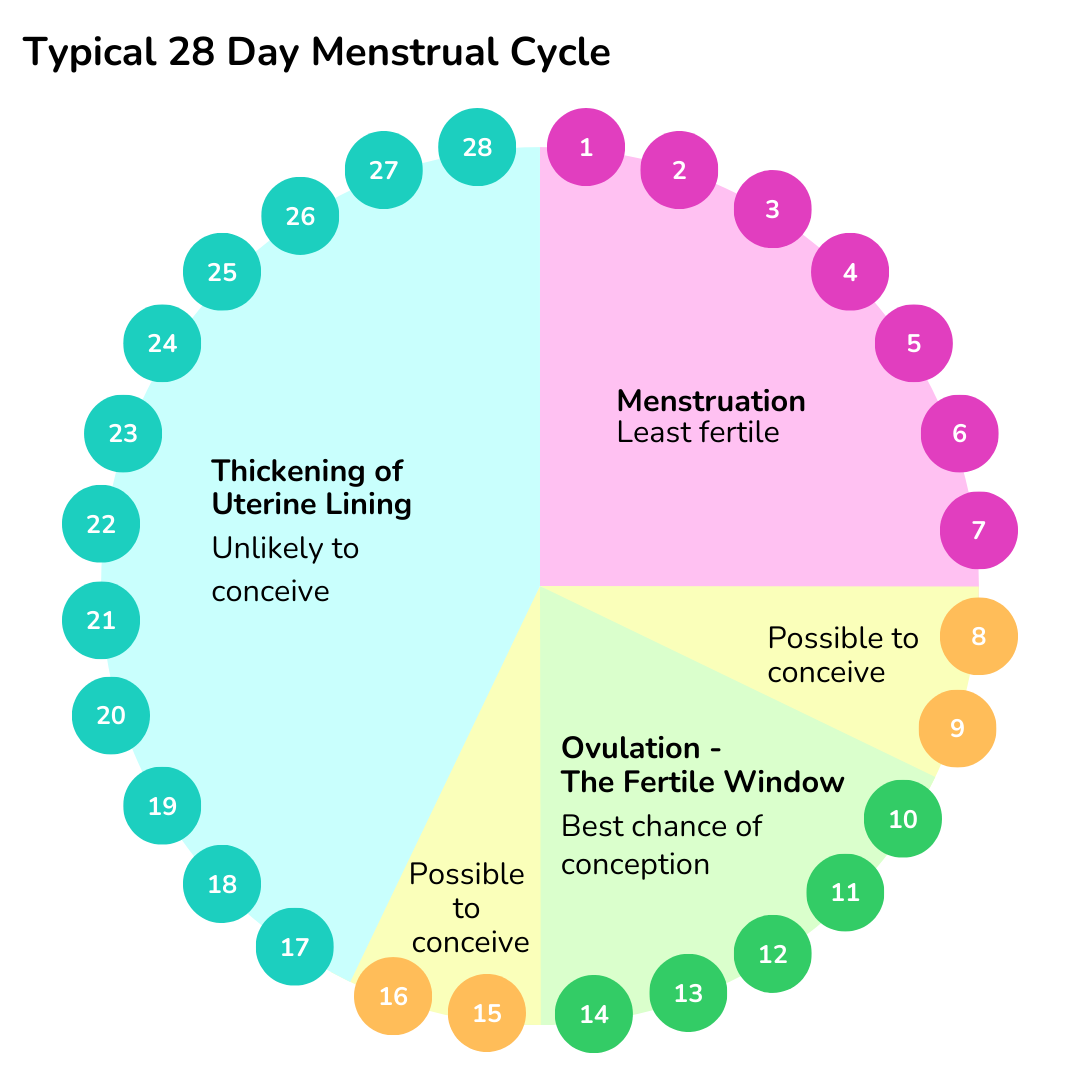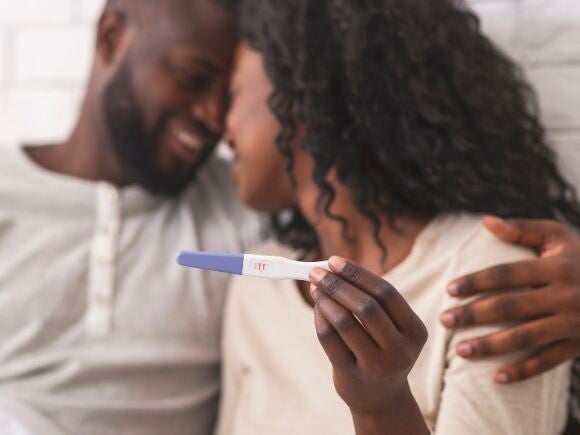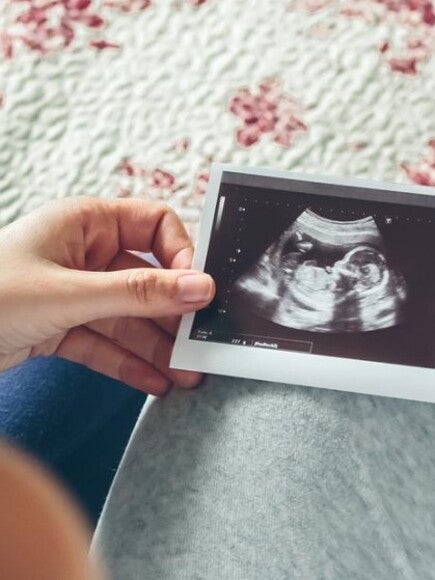What is a home pregnancy test?
A home pregnancy test provides a convenient and private way for women to determine if they are pregnant. Sometimes referred to online as HPT, a home pregnancy test is available from pharmacies or supermarkets and give you a result in just five or so minutes. A number of emotions and uncertainties can accompany the experience of taking a home pregnancy test, so understanding how they work and how accurate they are may help you manage your feelings and expectations. Your healthcare professional can provide you with further information and clarification of your results.
Understanding a home pregnancy test
Most home pregnancy tests can detect the hCG hormone (human chorionic gonadotropin) in your urine on the day your period is due. This hCG hormone, made by your placenta, is present in the urine or blood, when you are pregnant.
There are quite a few brands of home pregnancy tests available from a pharmacy or supermarket. A typical kit includes special paper that is sensitive to the presence of hCG hormone in urine. There are two common ways of testing for the hCG hormone in your urine:
- Collecting a urine sample and then testing it, using their special chemical paper; or
- Holding the end of the test wand under your urine stream.
It is important to use a home test kit according to the manufacturer’s instructions, or errors can occur. Always confirm your results with your doctor. Pregnancy blood tests taken by your doctor are rarely inaccurate.

When to take a pregnancy test
A regular home pregnancy test should be taken from around the time of your missed period. A test will show positive if the hCG hormone levels in your urine are high enough for this test to detect. Always follow the specific instructions on the pack for most accurate results. A common mistake is to take a home pregnancy test too soon before a missed period. For the most accurate result from a home pregnancy test wait at least 7 days after your missed period.
There are factors that may affect this timing of when to take a pregnancy test, such as irregular periods; fertility treatments, and contraceptive use.

If you're waiting in anticipation for a positive pregnancy test, there are early response pregnancy tests available for around 6 days before your missed period. These early response tests are designed to be more sensitive to hCG hormone levels in urine so in theory can give you an earlier indication. Remember that every woman is different and will have different hormone levels in her urine so the accuracy of this test is not as reliable as a regular home pregnancy test. There may be a higher chance of a false-negative result, meaning you are pregnant but the test is saying you’re not.
Accuracy of a Home Pregnancy Test
Home pregnancy tests offer accurate readings (around 97%), provided you follow the manufacturer’s instructions exactly. Errors in results can be due to many reasons, including:
- Not following the manufacturer’s instructions strictly;
- Taking the test too soon before your missed period;
- Contamination of your sample e.g. using a dirty cup to collect your sample;
- Taking fluid before performing the test may dilute hCG levels;
- Using an expired pregnancy test kit;
- Some medications can also affect results.
Blood tests conducted by your doctor are more accurate (about 99%) and can also detect lower levels of hCG hormone than the home pregnancy tests which means they can confirm a pregnancy earlier.
Interpreting and understanding a home pregnancy test result
When it comes to interpreting the results of your home pregnancy test, the instructions at the back of the pack indicates how soon will a pregnancy test read positive. In general, home pregnancy tests take about 3-5 minutes before it reveals the result. A blood test from your doctor will take a few days as they will need to send the sample to a pathology lab.
According to the manufacturer’s instructions, you will get one of three result options:
- POSITIVE = the hCG hormone has been detected in your urine, meaning you are pregnant.
- NEGATIVE = hCG hormone has not been detected, you are not pregnant at this time.
- INCONCLUSIVE = an error has occurred with the test and it cannot confirm with accuracy that hCG hormone is present.
A home pregnancy test can give a false positive or a false negative result so it’s always important to confirm results with your healthcare professional. Inaccurate results may occur for several reasons including not following the manufacturer’s instructions exactly to the letter; or taking a test too soon before your missed period.
- A false positive result means your test shows that you are pregnant, when in fact you aren’t.
- A false negative is when your test shows you are not pregnant when in fact you are.
If you're uncertain about the result, it’s always a good idea to see your healthcare professional who can conduct a blood test which is more accurate.
What to do with a positive home pregnancy test
There are a myriad of emotions and reactions that women may experience upon receiving a positive result. Understanding the next steps will help you manage any unexpected rush of emotions. Every expecting mother has her own set of unique characteristics and needs. Every pregnancy is different and there is no such thing as a standard protocol of care for every woman.
1. Schedule a prenatal appointment
It’s time to see your doctor to confirm your pregnancy. Your doctor will confirm this with a hCG hormone blood test. The blood test will measure the exact amount of hCG hormone in the blood and can give you an early indication of how far along you are in your pregnancy. They will also organise any other relevant tests to check everything is on track for your pregnancy journey. Depending on your needs, your doctor may also give you dietary advice and prescribe some pre-natal vitamin and mineral supplements. It’s also an opportunity to ask questions and get your head around what lies ahead. Make the most of your time with your doctor.
2. Be prepared
Once your tests and scans are complete make sure you bring them with you to any other specialist appointments. Don’t forget to ask lots of questions and write the answers down, often there is a lot to take in when you first find out you’re pregnant.
3. Be proactive
Make a list of the things you’d like to talk about in order of priority. Don’t be afraid to bring up your concerns – discussing everything with your doctor is a good idea as even small things can be important for you and baby’s health.
4. Consider lifestyle changes
There are some lifestyle changes that may need to be implemented immediately to keep both you and your baby healthy. This can mean stop smoking, stop drinking alcohol, and possibly even reducing caffeine intake. There are also a list of foods to avoid while you’re pregnant, check it out here. It’s important to also ask your doctor about pregnancy supplements you may need to start if you haven’t already, such as folate.
5. Seek out your support crew
Raising a child takes a village, meaning it’s pretty hard doing it all on your own. You may already have your tribe ready and waiting, otherwise you will start accumulating them along your journey.
6. Know where to get trusted information
If you get a positive result on your home pregnancy test, make an appointment with your doctor who will be a great source of knowledge, support and guidance on your specific pregnancy needs. Online government websites such as www.healthdirect.gov.au and www.pregnancybirthbaby.org.au are also great for reputable general advice.





